The United Auto Workers union is hoping the third time’s the charm at the Volkswagen assembly plant in Chattanooga, Tennessee. In 2014 and again in 2019, workers voted to reject a union organizing bid. Now, the UAW is back as part of a broader effort to organize workers at more than a dozen non-union plants across the country. More than 1,000 of those at VW have signed cards that could trigger a third vote.
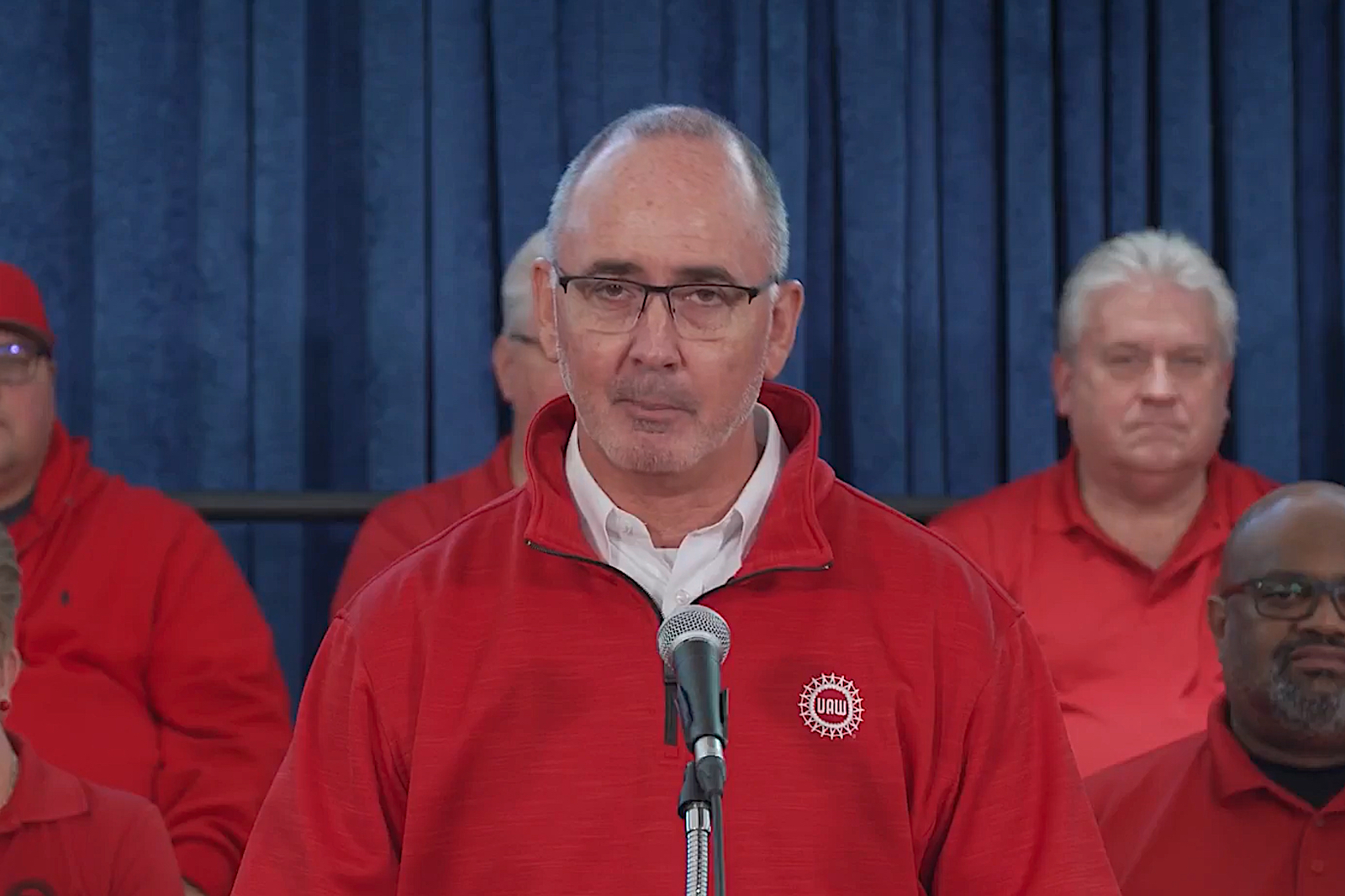
UAW President Shawn Fain is shepherding the organizing effort at the transplant automakers as well as Tesla, he’s calling Stand-Up 2.0.
After scoring major gains — including 25% pay hikes — following a seven-week strike against Detroit’s Big Three automakers, the union just launched the largest organizing drive in its history. It’s targeting the broad array of non-union auto assembly plants that have popped up across the country, mostly in the South, during the past four decades.
Gaining traction
And it appears to be gaining traction in Chattanooga, Tennessee, home of the Volkswagen assembly plant producing vehicles like the battery-electric ID.4 SUV. More than 1,000 workers there have signed cards seeking union representations over the past week, the UAW said in a statement.
“People are standing up like never before,” Steve Cochran, a skilled trades worker leading the drive for a union, said in the news release. “There are a lot of young workers in the plant now and this generation wants respect. They’re not okay with mistreatment by management. They see what’s happening at Starbucks and Amazon. They know that standing up to join the union is how you win fair treatment, fair pay and a better life.”
Taking things cautiously
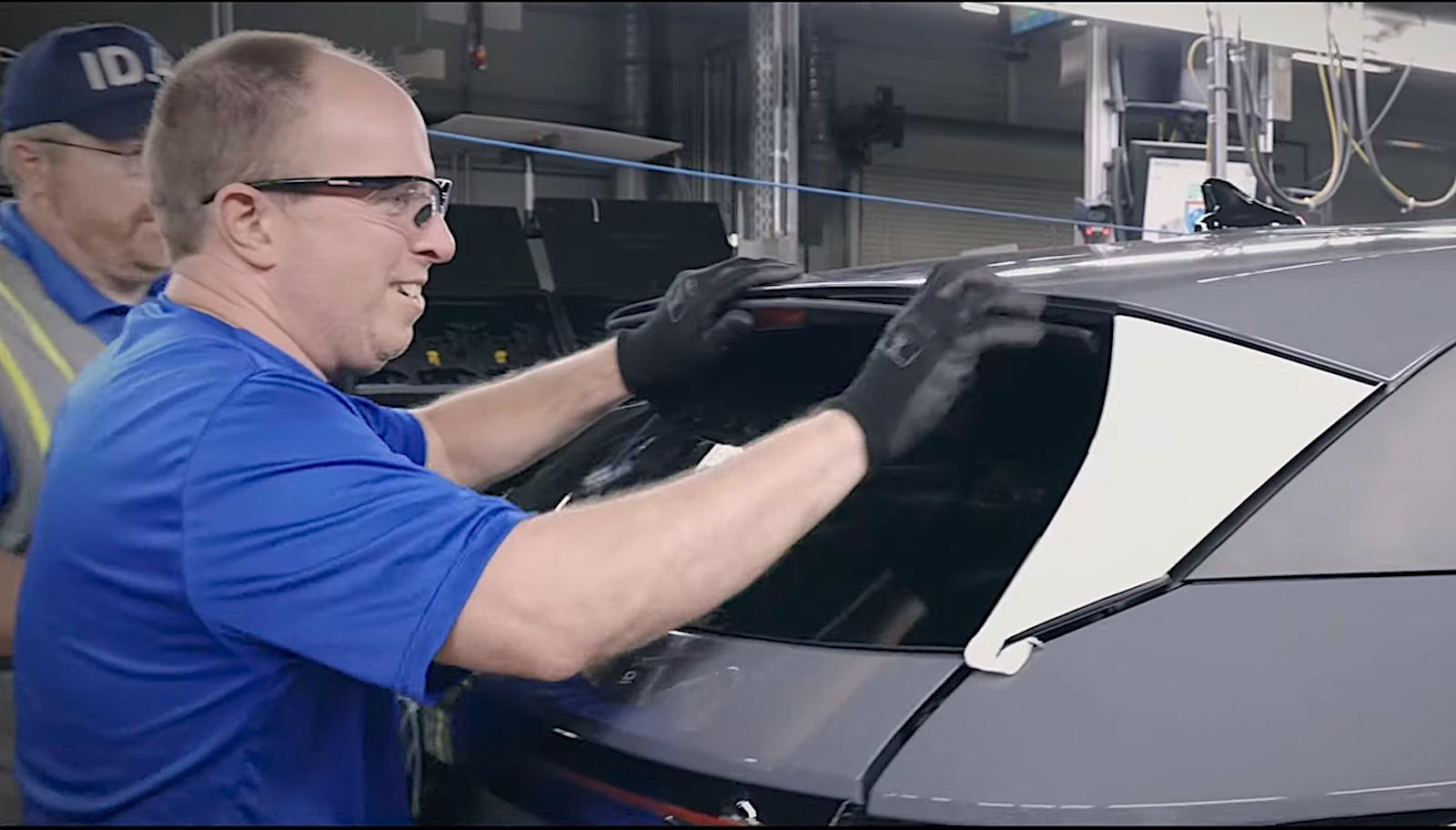
The UAW’s current effort in Chattanooga is the third time the union’s attempted to organize the plant.
The union is approaching the possibility of getting representation rights in Chattanooga cautiously. It thought it could smell victory when it lined up two prior votes, first in 2014 and then five years later. It failed both times, in 2019 by a narrow vote that had 51.8% of workers opposed to the UAW. Both elections were heavily contested and outside forces laid down plenty of pressure in what is seen as one of the most anti-union states in the country.
While VW itself is constrained by federal labor laws in what it can do or say to influence an election it has taken one notably step that could play a factor, according to Marick Masters, a business and labor professor at Wayne State University in Detroit. It announced last month that it will immediately raise wages by 11%, matching what UAW workers got from General Motors, Ford and Stellantis during the first year of their new contract.
Legally, the UAW could call for a vote as soon as 30% of workers sign cards authorizing a vote. The union’s current strategy calls for waiting until at least 70% of the VW plant’s 3,800 workers sign cards. But it will begin directly rallying employees after a 50% sign-on.
UAW turns to a new playbook
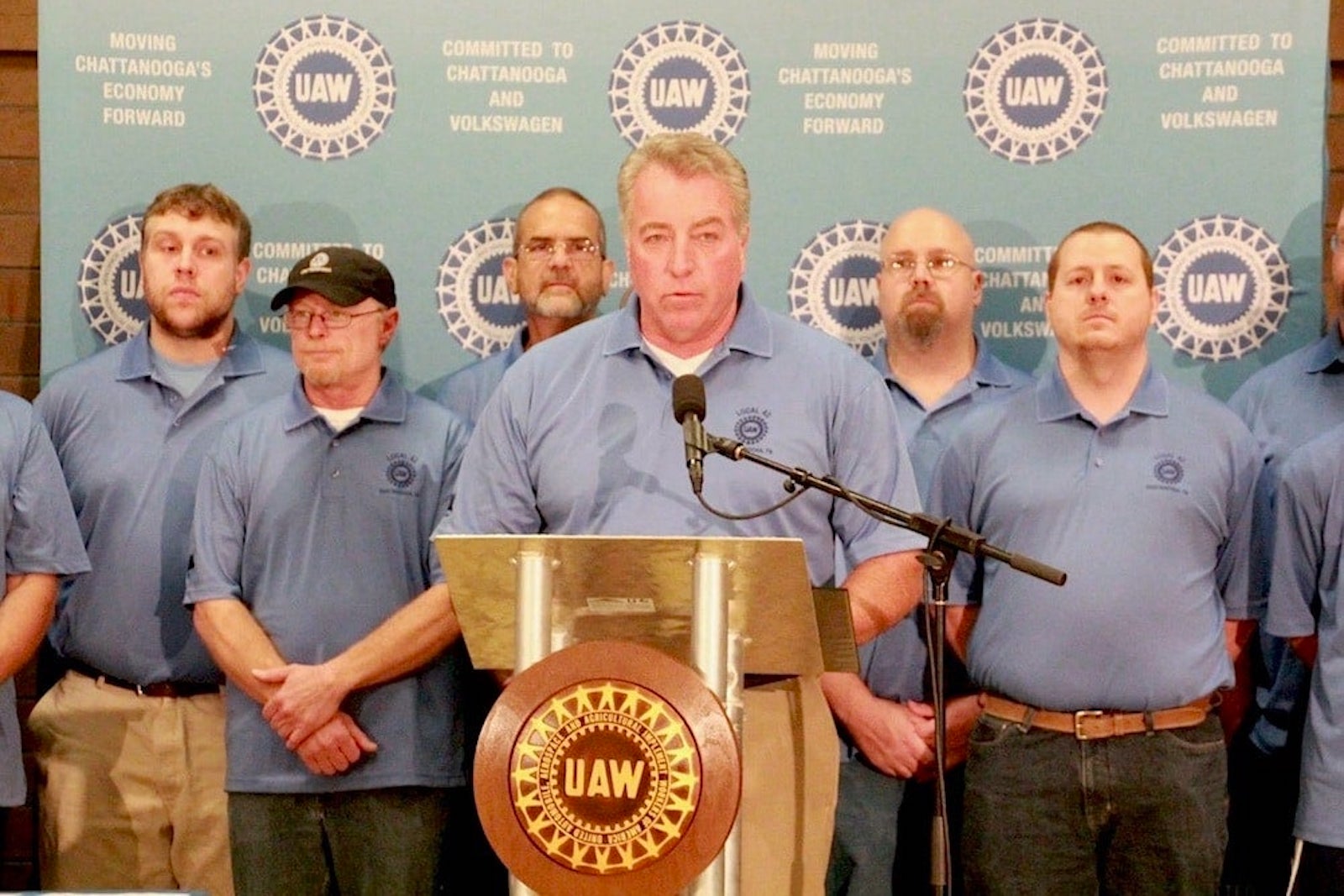
Gary Casteel, then the UAW’s Secretary Treasurer and leader of the union’s organizing effort in Chattanooga in 2014, led the first effort to organize VW’s plant.
If they eventually do approve the organizing drive it would come as a major victory for not just the UAW but its new President Shawn Fain who crafted a unique strategy in negotiating with the Detroit automakers this year. Rather than focusing on one manufacturer in the lead-up to their September 14 contract deadlines, Fain took on all three, launching limited “stand-up” strikes to keep the companies off balance. It paid off with one of the biggest set of gains in UAW history.
Now, Fain has set out organizers at all of the various non-union automakers. These include not only foreign-owned “transplants,” like the ones operated by Toyota in Kentucky, Honda in Ohio and BMW in South Carolina, but the two factories run by Tesla in Texas and Fremont, California.
“It won’t be easy,” Masters said in an interview. “The companies will be very resistant,” though, if they take steps that are seen as too overt, the Biden administration’s National Labor Relations Board could require an election and even order a manufacturer to accept union representation.
Organizing efforts heat up across the country
Masters and other observers note that VW wasn’t the only manufacturer to take preemptive action against the UAW in a safe way. Honda, Hyundai, Nissan, Subaru and Toyota have all announced wage hikes in response to what happened in Detroit. That’s not a first, however. The transplants have typically responded to what’s happened with the Big Three, generally matching wage hikes while avoiding some of the other contract clauses that would restrict their flexibility and productivity.
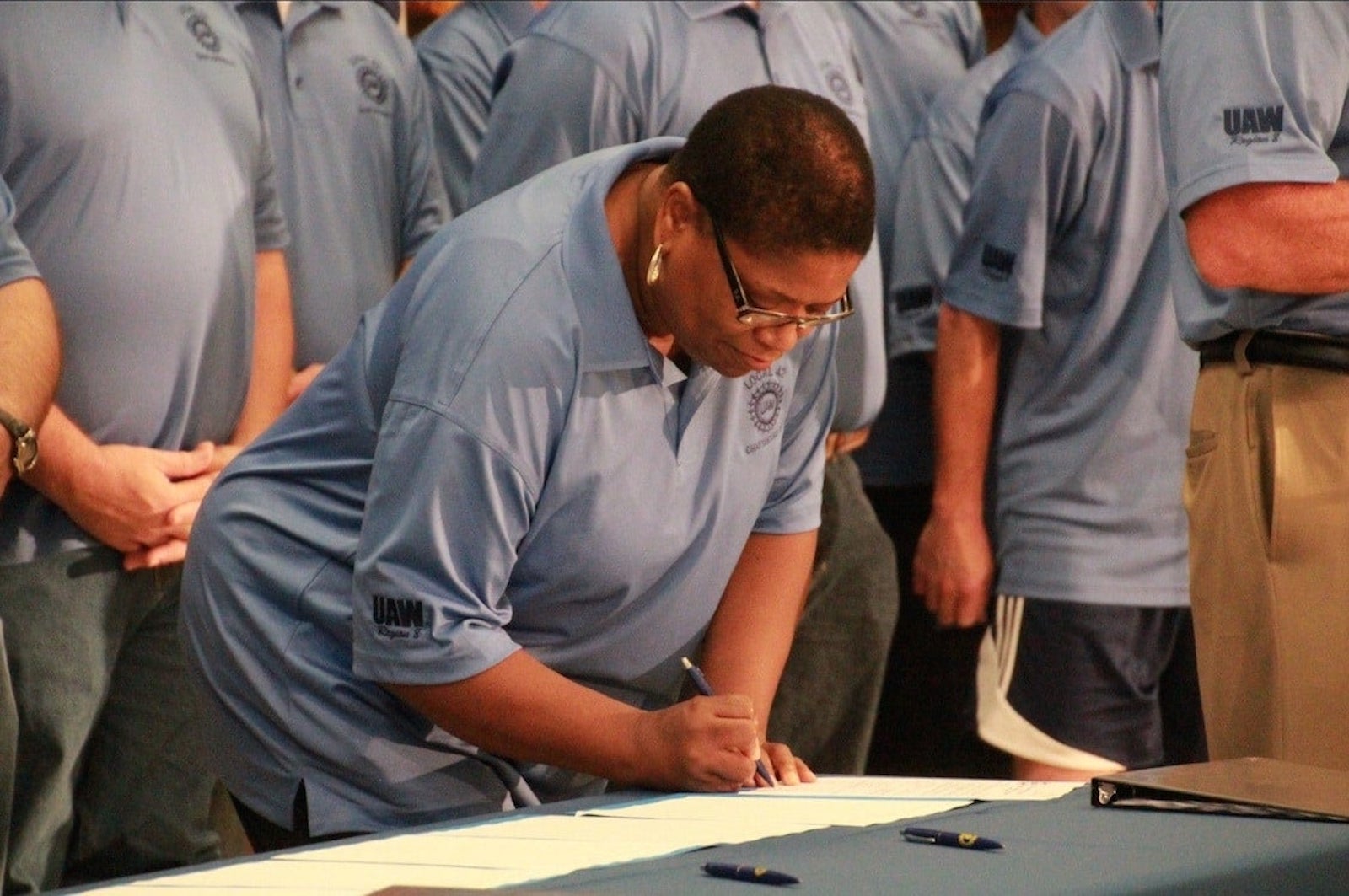
Scores of VW employees did support the UAW’s efforts to organize the plant in 2014 and again in 2019 — but not enough.
The UAW claims it’s seen “thousands of workers” sign cards at other target plants, but it did not offer specific details beyond what it has seen in Chattanooga.
Even if the union wins a vote at VW it’s unclear what will happen. Tennessee is a “right-to-work” state, meaning those on the line could opt not to join the union. Even if they don’t, they would likely receive union-level wages and benefits, as is typically required in right-to-work states.
Reversing decades of decline
Even a single victory would help the UAW which has seen its organizing effort fail repeatedly, including at Nissan where workers voted no years ago.
Meanwhile, a union that was once one of America’s most powerful has shrunk markedly. At its peak, in 1970, the UAW represented about 1.5 million U.S. autoworkers. That shrank to just 408,000 by 2001 and the decline accelerated during the Great Recession when dozens of Big Three plants were shuttered. The rolls now cover 146,000 domestic autoworkers. That’s less than half the organization’s total membership of 380,000. A growing number of UAW-represented workers are employed in non-automotive fields like health care and government.
On Wednesday, 1,360 UAW workers approved a new, 3.5-year contract at Blue Cross Blue Shield of Michigan, ending an 88-day strike.

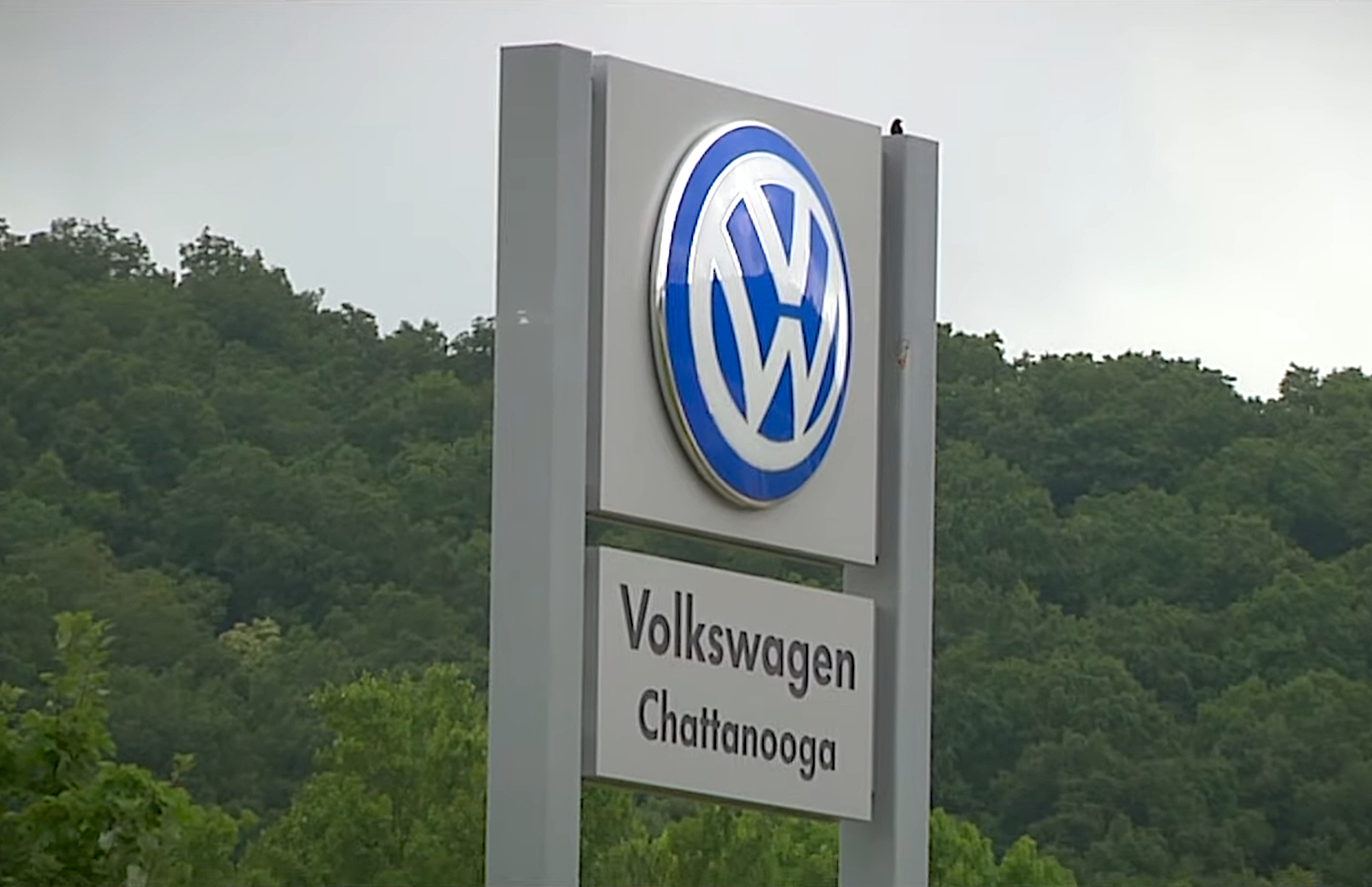

0 Comments